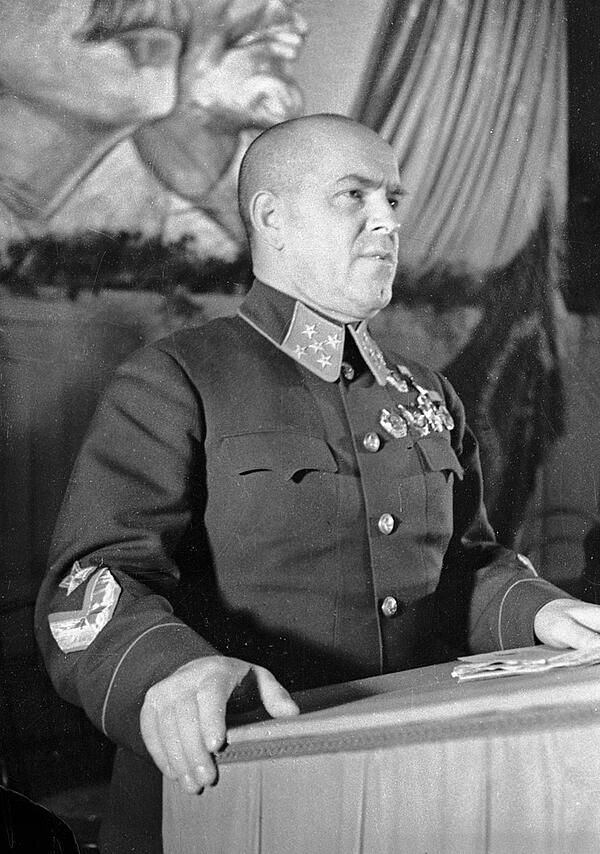Georgy Zhukov
Georgy Zhukov was a Soviet General who played a crucial role in the defeat of Nazi Germany inWorld War Two. He helped liberate the Soviet Union and Eastern Europe from Axis occupation and in 1945 headed the Red Army attack of Berlin.
Born in 1896, Zhukov served in the Russian Imperial Army as an officer during World War One. After the Bolshevik revolution in 1917, Zhukov became a communist Red Army member. He fought on the Bolshevik side during the Russian Civil War as a cavalry commander.
Once the Bolsheviks emerged victorious from the Civil War, Zhukov intently studied armoured warfare. He had personally witnessed the human cost of using outdated modes of warfare and he started to develop his own suggestions for using armoured vehicles in future combats. Joseph Stalin, who had purged many Red Army officers, found his learning and forward-thinking impressive. Zhukov was promoted to the rank of Army General in 1940, and the next year promoted to Chief of the General Staff of the Red army.

The open phases of Operation Barbarossa brutally embarrassed the Russian army. The Germans sped on to Stalingrad in the south, infiltrated the Moscow suburbs in the west and surrounded Leningrad in the north. Zhukov’s first important challenge was to save Moscow. He managed to do so, then forced Field Marshall von Paulus to surrender his troops at Stalingrad. This was a devastating defeat for Germany.
As his armies advanced through the Soviet Union and into occupied eastern Europe, Zhukov made use of the new T-34 - a Soviet tank that established new standards for military design. This helped the Soviets win at the Battle of Kursk during July and August of 1943.
Zhukov was applauded for the Soviet victory against the Nazis at the Battle for Berlin, April to May 1945. The Soviets suffered many casualties during the battle, but the victory still gave Zhukov a laudatory military epithet: ‘the man who never lost a battle’.
However, it was always dangerous to become too famous in Stalin’s Russia. Stalin could not tolerate anyone stealing his glory. Stalin demoted Zhukov in 1946 to a Russian regional post and was subsequently sidelined.
Stalin’s death in 1953 allowed Zhukov to emerge once again into the public sphere. In 1955, he was made Minister of Defence and promoted two years later to the Executive Committee of the Communist Party. He ended up being sacked from both these positions in 1957 when he faced an accusation of placing the military above the party.
Zhukov died in 1974 at the age of 78.
MLA Citation/Reference
"Georgy Zhukov". HistoryLearning.com. 2025. Web.
